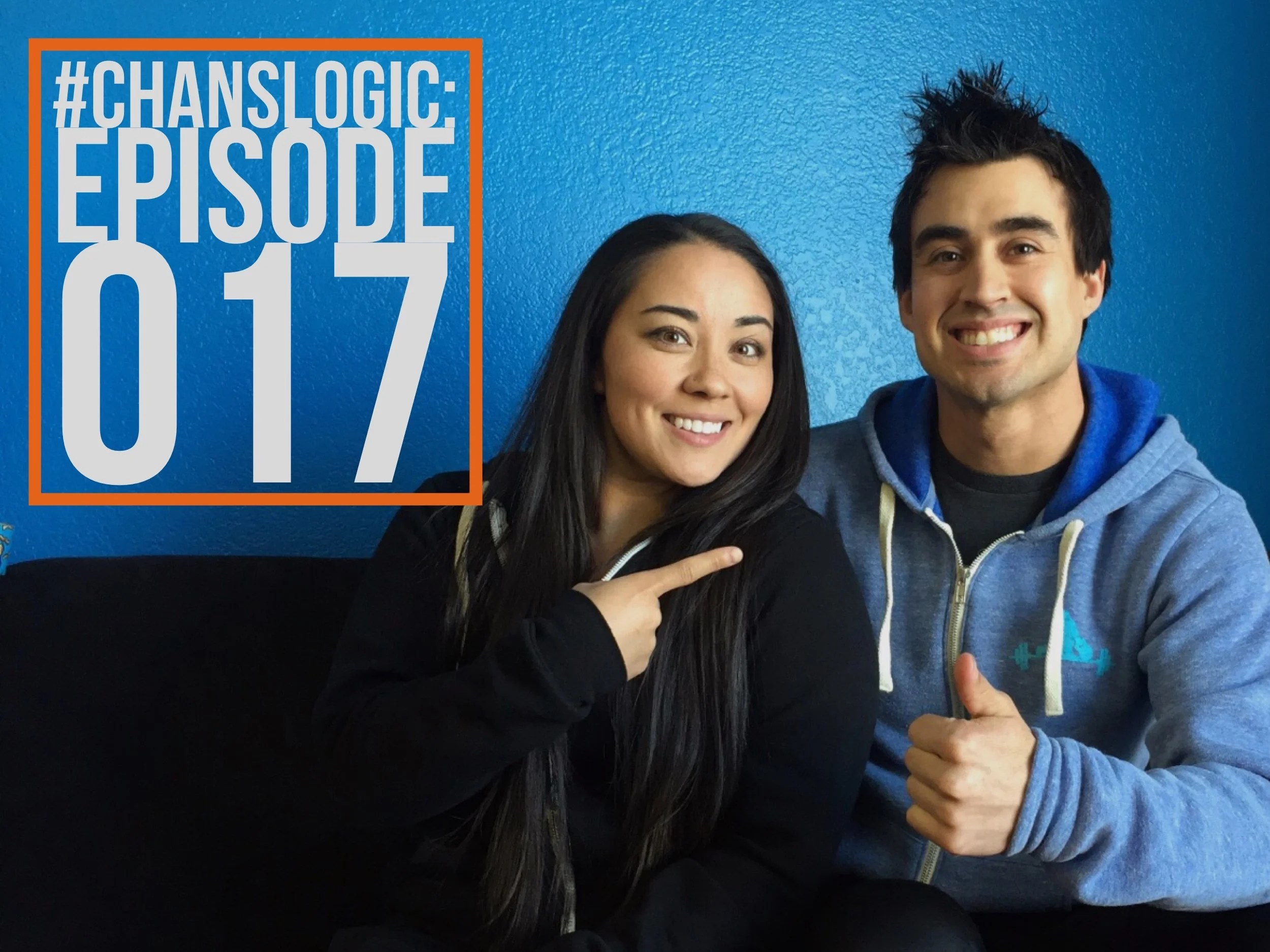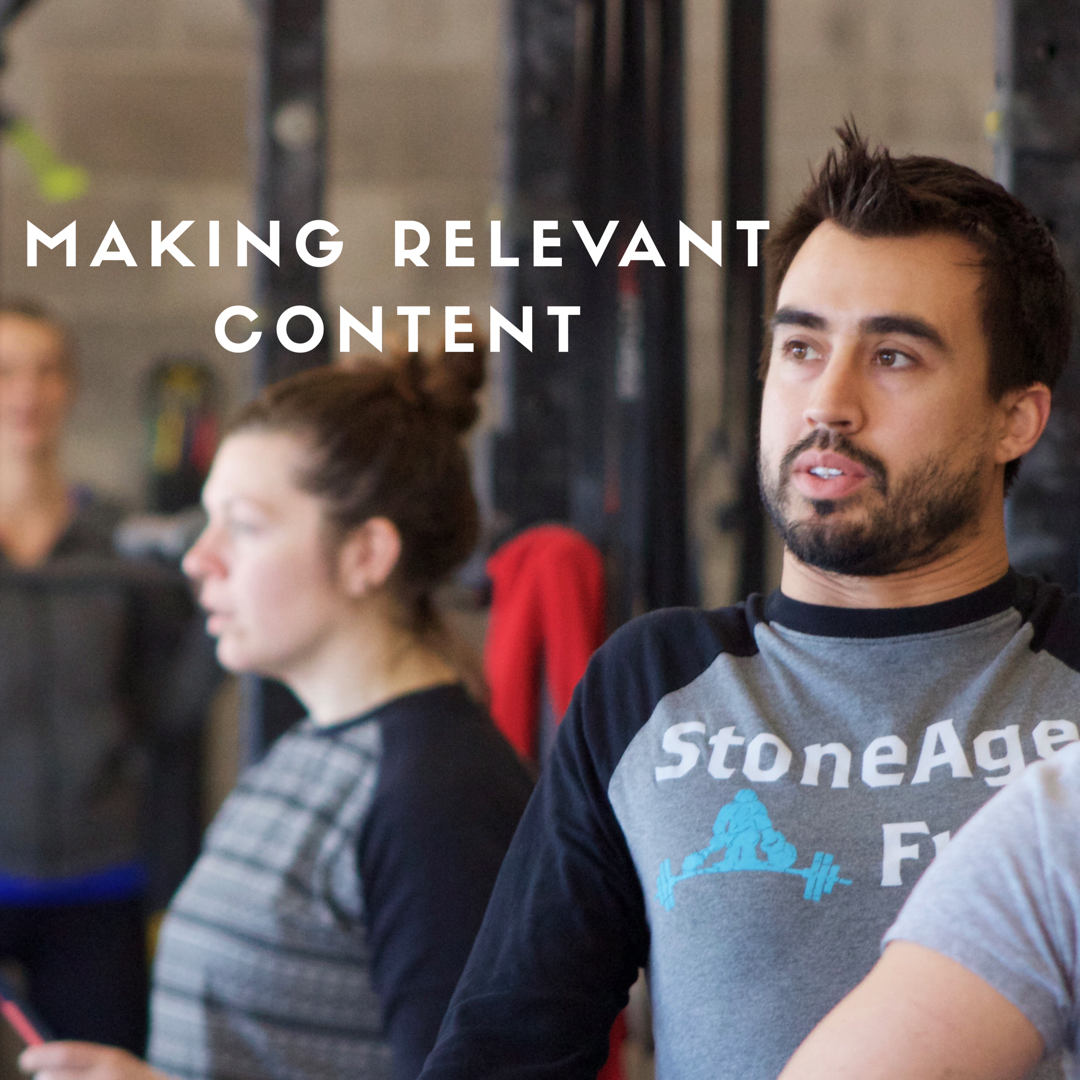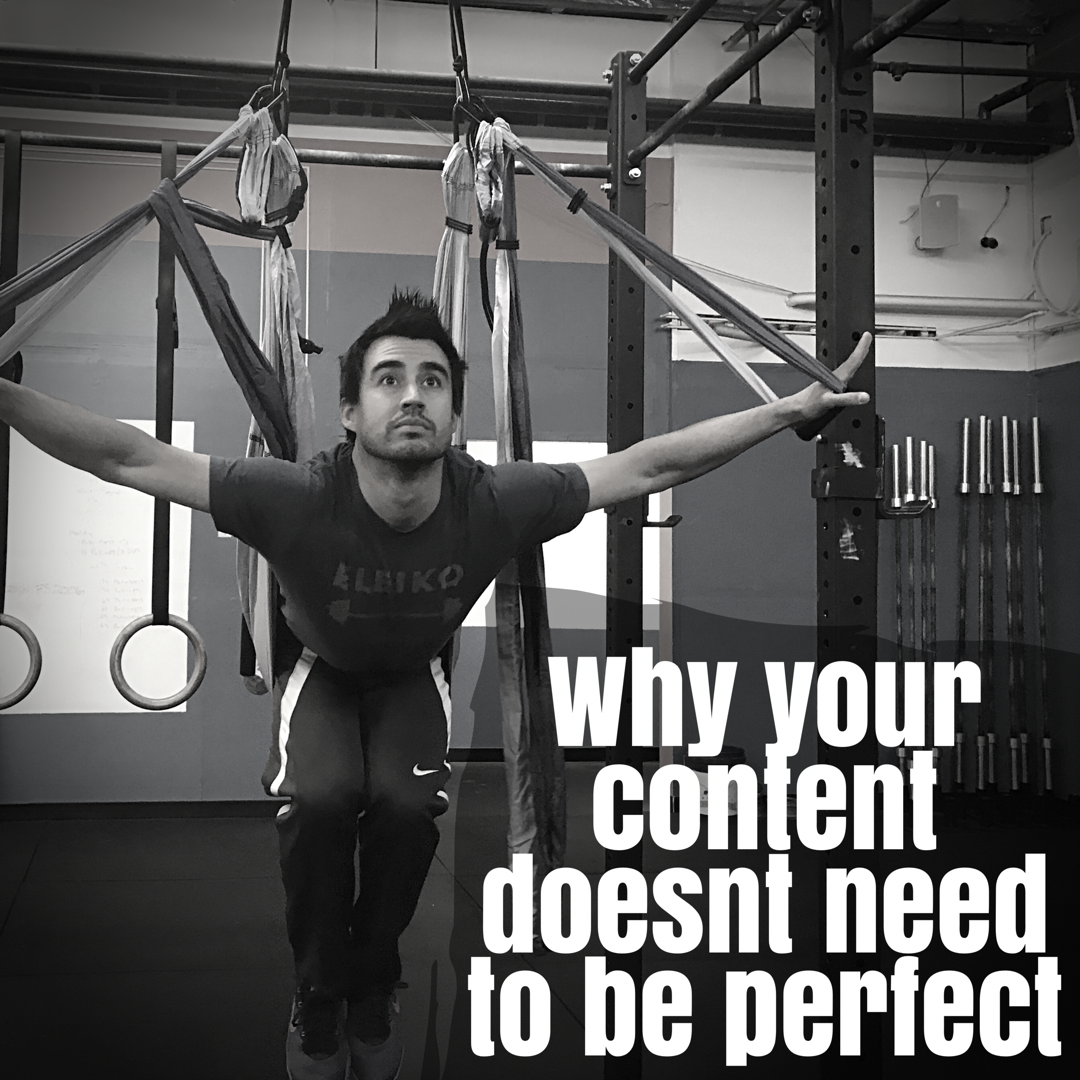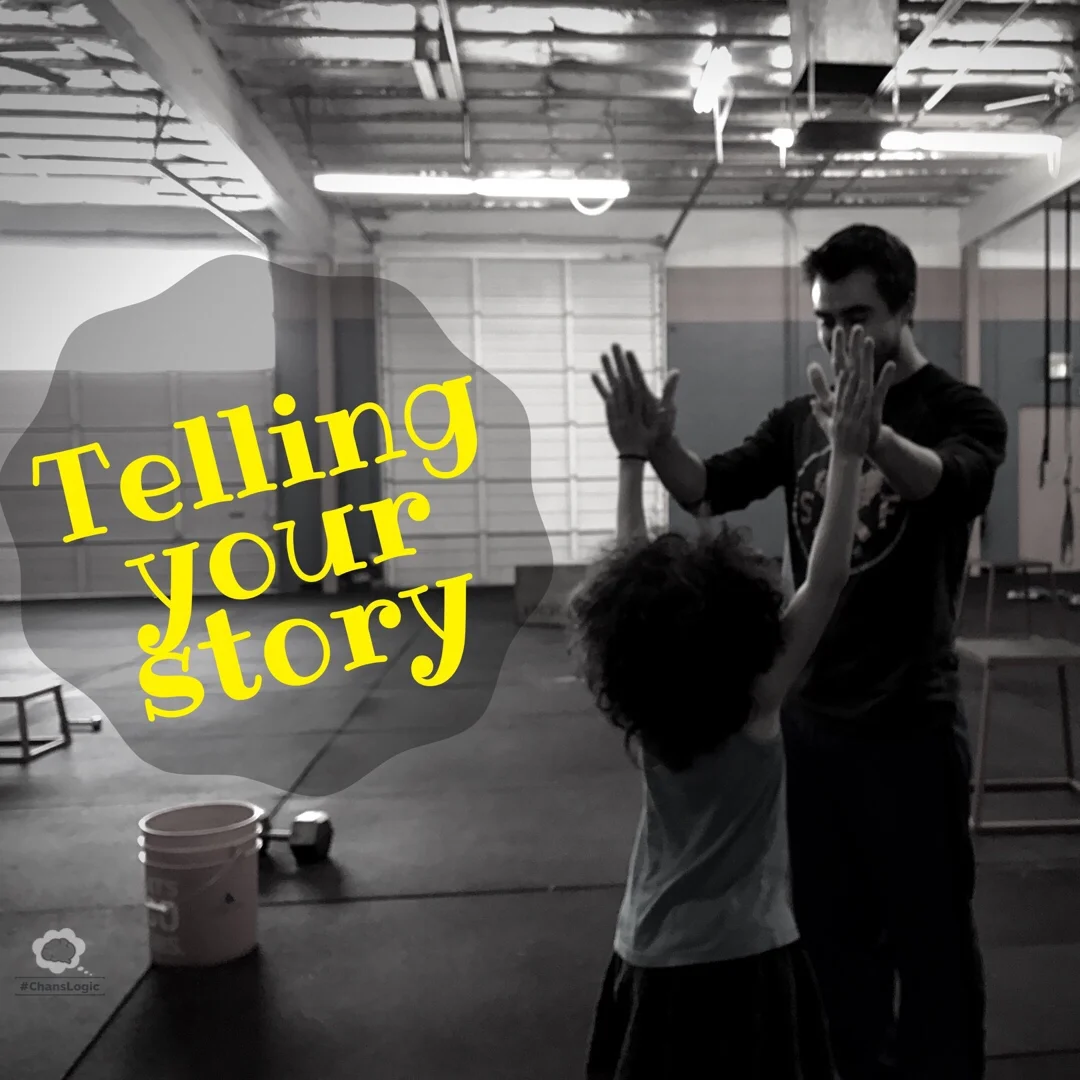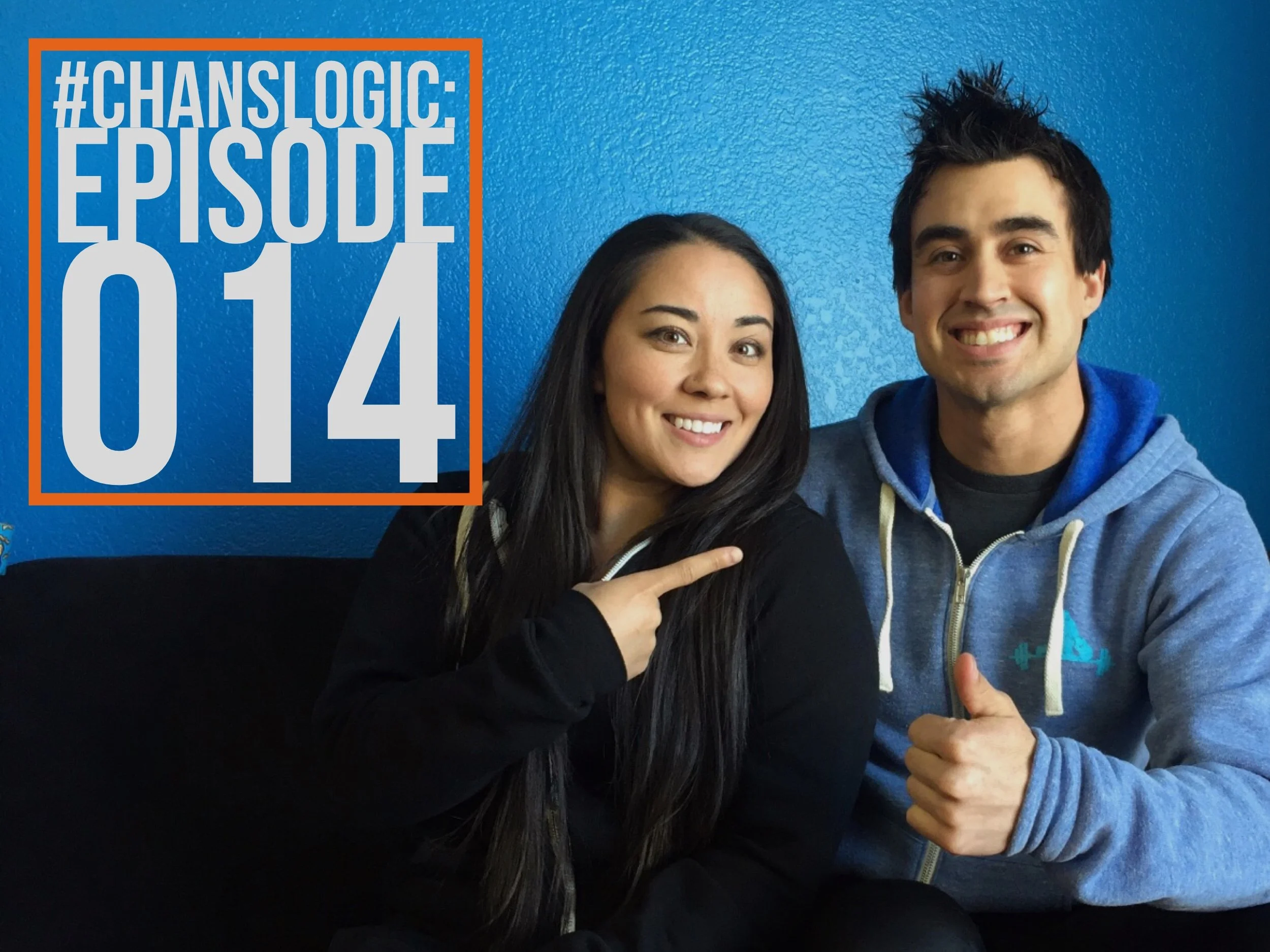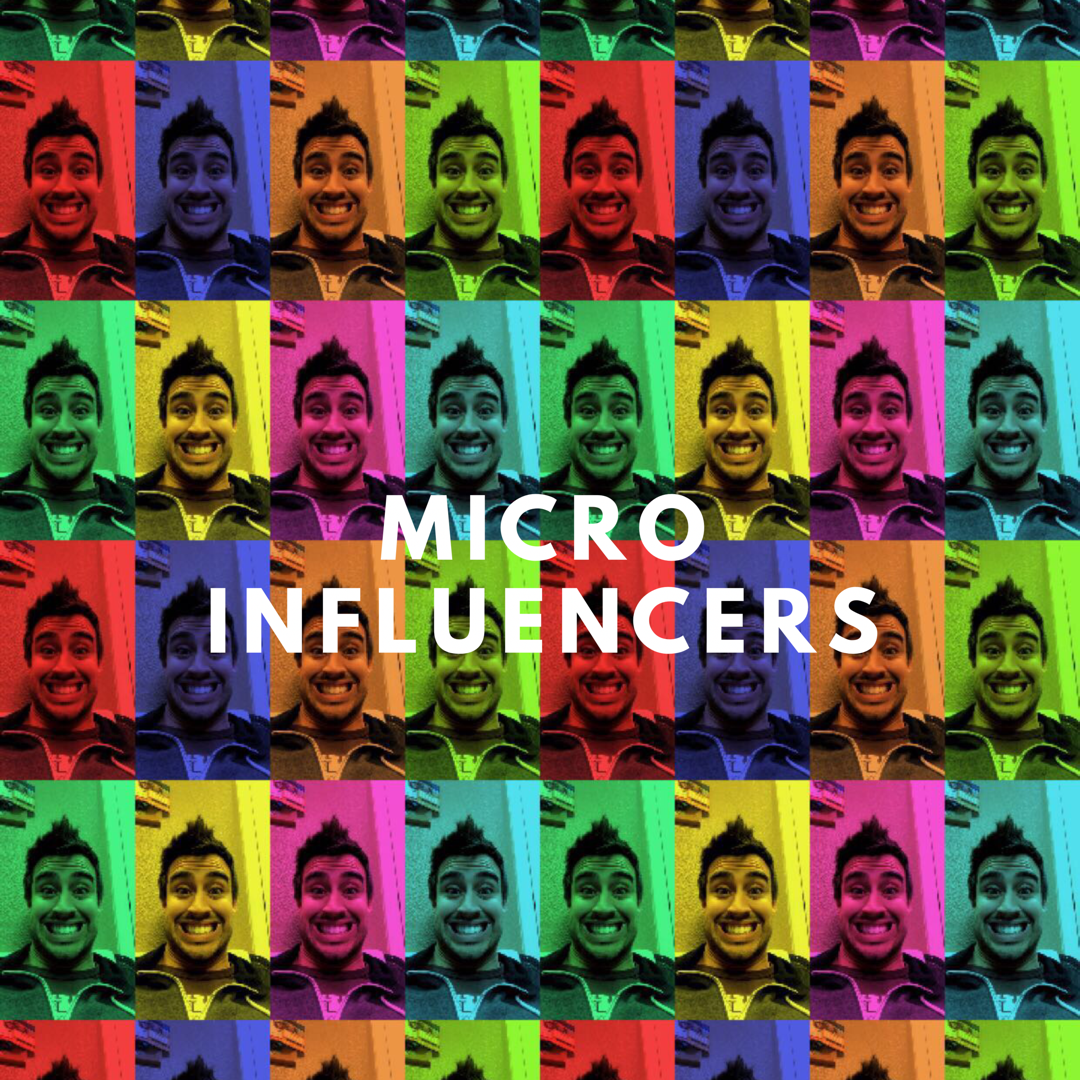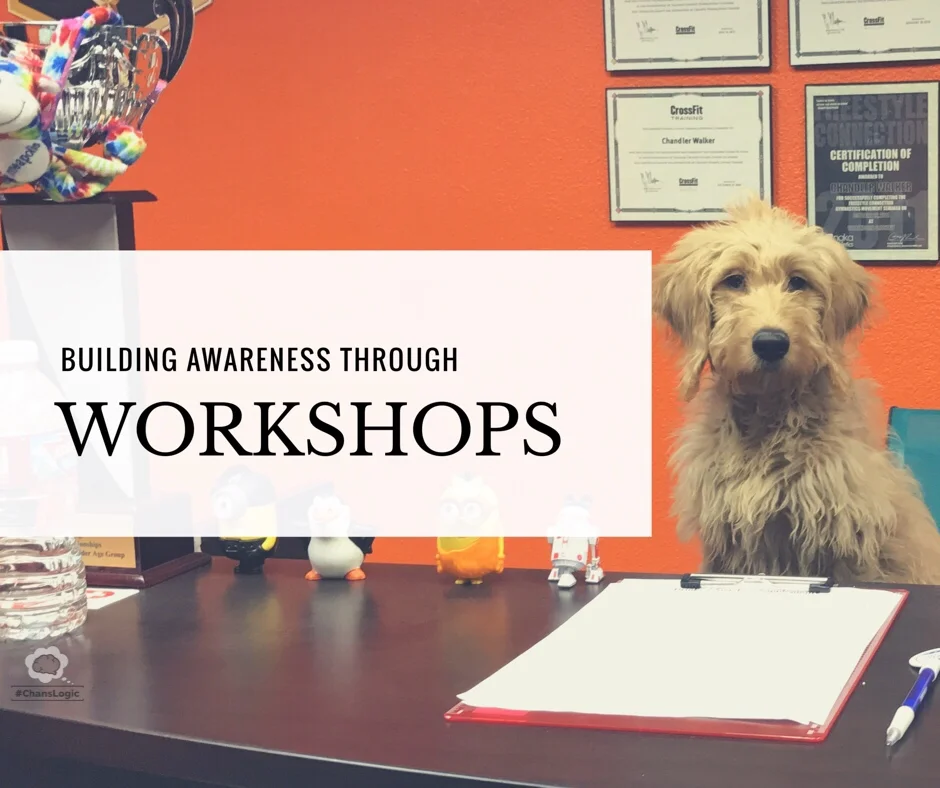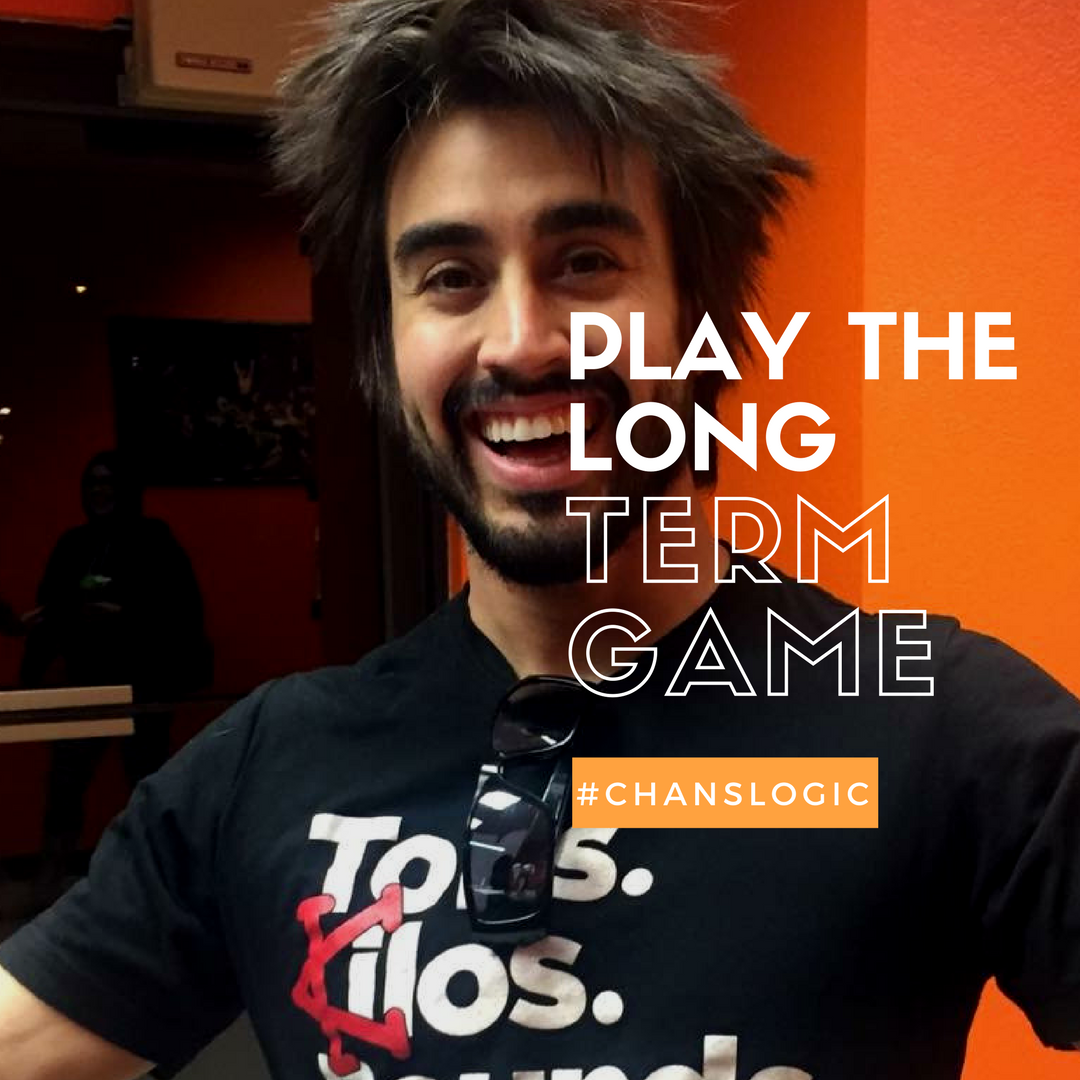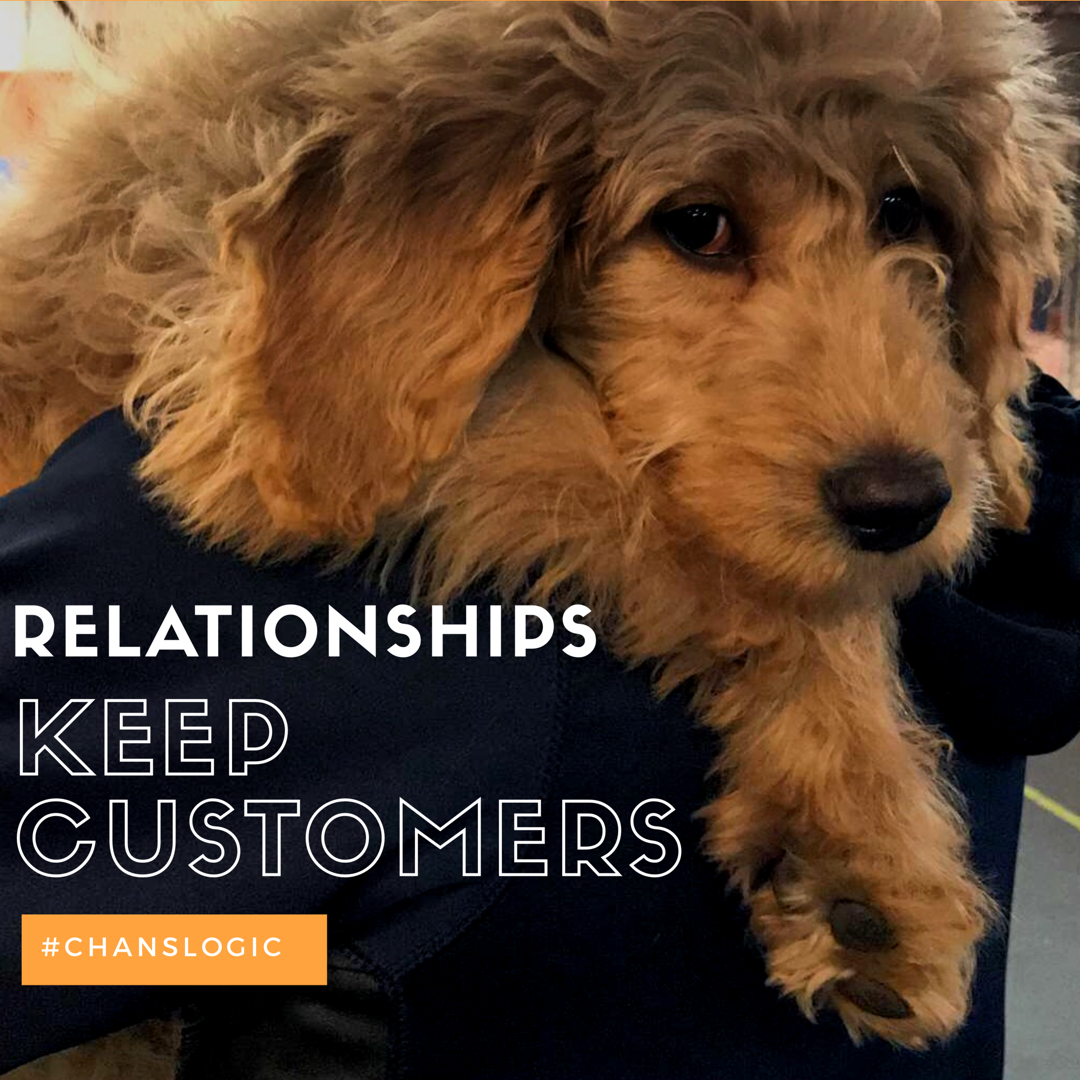Burnout is a very real problem in business and in the entrepreneur lifestyle, but what can you do to prevent it and how can spot the problem before it becomes big?
Read moreYoungpreneur’s Podcast
Check out the latest podcast I did with the Youngpreneur’s Podcast. I think you will find a ton of benefit from this and the conversation was on point!
Read moreA Message About Your Brand
The way you showcase your brand to the public and the way they perceive your brand will dictate everything about your brand. Always remember if you want a brand that is loved you need to work to showcase why it is so special!
Read more#ChansLogic Ep 18 - All Business is People Business
In this episode of #ChansLogic I bring on a special guest, Jim Palmer and we talk about why all business is people business!
Read moreChansLogic Ep 017
In this episode of the #ChansLogic podcast I bring Dave Picardy back on as a special guest and we talk about:
- how important rewarding teamwork is in a business and why you can simply incentivize based on individual performance alone
- How a culture of teamwork will ultimately be a significant driver for growth of the business,
- What the compensation plan for team based performance and overall growth of the business looks like
Follow me on these platforms:
Making Relevant Content
Content is a great way to get in front of the consumer and an excellent way to work to develop trust with them, but actually figuring out what to produce can be the most difficult part.
Read moreInterview with Camilo Gutierrez
In this video Camilo interviews us about strategies to grow and market your business, manage relationships (including your own) and much more! You don't want to miss this interview!
Read moreWhy Your Content Doesn't Need To Be Perfect
You're content should show flaws, real people and real environments. It's how to forge a strong connection with the consumer and show that we are in fact different!
Read moreChansLogic Ep016
In this episode I talk with Damion Lupo about the relationship and why your business should be highly customer centric and focused on building a following of raving fans!
Read more#ChansLogic Episode 015
Your marketing should be focused on the long term strategy and in this episode we talk about how to organizde that strategy and how to ensure you are always one step ahead of the game!
Read moreHow To Tell A Story
We're often told that we need to tell a story in order to effectively market our brand, but how do we actually tell that story?
Read moreA Lecture For A University of Nevada Reno Entrepreneurship Class
In this video I talk with an Entrepreneurship class about what makes a good entrepreneur and why you need to sleep, eat and breathe this stuff to win!
Read moreChansLogic Ep014
In this episode we talk about CULTURE and how it can differentiate you and create personality in your gym.
Be REAL. Be HUMAN. Be SOCIAL.
Use #ChansLogic to ask questions!
Find Chandler on:
Snapchat | cwalkeriii
Facebook | ChandlerSAF
Instagram | @chandler_saf
Twitter | @ChandlerSAF
YouTube | youtube.com/c/chandlerwalkerSAF
Find Steph on:
Snapchat | sbentley02
Facebook | steph.SAF
Instagram | @steph_saf
Music by Victor Spoils | victorspoils.bandcamp.com/releases
Instagram Stories
One of the newest features of Instagram is Instagram stories and the ability to send messages that disappear to people in the application.
The ideas behind Instagram stories are quite obviously a copy of Snapchat in another attempt by Facebook to take the awareness on Snapchat and move it to Facebook's influence via Instagram stories.
The reason Instagram stories has worked in my opinion is that they have introduced some features and ideas that are not included in Snapchat and Instagram maintains a very large user base at around 600 million users.
This means that by introducing some very well done features they can leverage their already large community, to in theory stop using Snapchat and move to Instagram entirely. Additionally I think they hope to move the younger demographic away from Snapchat.
Now how do Instagram stories work? Basically you post a picture, video or a boomerang to the stories section of your Instagram and it shows to not only your following for 24 hours, but it can also be found by others in the explore feed. The latter is a feature that has always been lacking in Snapchat.
Additionally you can go live from the stories section and utilize the hands free option where the app records without you having to hold onto the button. A pretty neat feature that adds in some versatility and more functionality to the platform.
Not to mention that Instagram places the stories at the top of the app which makes it incredibly easy to get sucked into watching all your friends stories. Plus if you watch some friends stories more than others they will be placed before any other stories. Ensuing that you only see the stories you want to see or that you watch the most often.
Instagram has done an incredible job on its stories feature and has definitely drawn its user base deeper into the app and at the same time garnered some attention from Snapchat users.
The question is and one that people always ask is: will Instagram stories kill Snapchat? My answer is no, it's simply not possible for an application to completely rip another application of its user base with the introduction of a similar product. Especially with a focused user base like Snapchat has.
To understand why you have to look at the user base and ideals of each platform. Instagram is focused on growing its user base and pushing more people into the app to maximize the amount of reach it has globally. While Snapchat is focused on keeping people engaged with the app for longer periods of time and keeping its current audience highly engaged. Thereby hopefully capturing advertising dollars from the TV market.
It's essentially a story of focused numbers vs garnering and keeping a niche. Additionally I've heard Instagram stories being called: "the Snapchat for old people" by the youth I coach, which is interesting in that youth are highly resistant to getting on a platform their parents might be on.
What's the ideal strategy to take advantage of the attention on Instagram stories? I would say you need to focus on getting 5-7 good story posts each day and in these posts tag any locations you are at and any people in the post. This way they are notified when you showcase them!
The best stories are organic. By this I mean you should grab some moments throughout the day that are interesting, funny or inspiring and sometimes that means just opening the app and talking about what's on your mind. It doesn't have to be perfect and that's what makes these store so unique. It's literally the real world brought to you by you!
Along with those 5-7 good posts per day I would focus on going live 1-3 times per week and just engaging with your audience. Ask and answer questions and simply hang out with them. Sometimes we get on and just do karaoke and take requests, because its fun and engaging for the audience.
Finally you can create content and calls to action specifically for the story after a few days of good content, where the link is in the story (If you have that feature) or alternatively in your bio. If you want to create a post to upload specifically to Instagram stories and don't have a graphic designer I've found that using the Pinterest option in Canva makes a picture that's a perfect fit for stories.
Instagram stories is an incredible addition to the Instagram app and has the most attention from the consumer right now in my opinion. I would highly recommend setting yourself up and being consistent on the platform if it fits your demographics.
Just remember: don't abandon your other platforms like Snapchat. You never know where the market is going to swing or what new feature might pull the user base to one side!
Building Your Brand Story
Building your brand to have a unique and identifiable story is the keystone to developing a strong brand presence and developing a brand that consumers will identify with and remember in your community or niche.
This is one of the best ways to work to create the idea that you are different in a sea of seemingly similar competitors in what can sometimes be a very competitive market.
One of the key aspects of building a strong brand is getting the consumer to recognize that brand and be aware of and be able to recall that brand within a few seconds.
Think about it this way, people will pay a huge premium for a brand name associated with a product. Case and point sunglasses, why do Oakley sunglasses cost so much more than the ones from the dollar store?
Because Oakley has been able to develop the idea in the consumer's mind that their brand is a premium and gives you status when using it.
This is what you want in an ideal branding scenario to be able to create the brand that everyone wants to use, but not everyone necessarily can. If you can do this it drives both want and desire up for your products and services
The process to developing a strong brand can be broken down into a step by step process that goes in the following order:
Telling your brand story and how or why your brand came to be
Doing this in both a written fashion and in video format is an excellent way to really dive in and understand what is it you’ve started and why it would be interesting to the consumer. A story helps the consumer begin to identify with you and helps them to feel comfortable with your brand.
- If your story includes how your brand came to be, the people involved in building it up and the struggles and triumphs along the way you will be able to forge a much strong bond with your community by creating humanistic qualities the consumer can identify with in your brand.
Have your employees tell the story behind your brand and the story of how they came about and why they are involved with your brand. The people behind your product or service are a powerful motivating factor. Especially if they are truly on board with it and truly believe in it.
Have your best customers tell the story of why they choose you and why they keep coming back to you. This creates the idea that the people who are using your products or services are on board with it and love what you do. There is no tool more powerful than social proof. Especially if you get a customer who tells a very powerful story and can motivate and encourage those who have not jumped on board yet.
Establishing buyer personas to understand who your target market is so that you are able to produce content specifically tailored to that target market and to be able to build your brand in the most efficient way possible.
Take the story you made above and compile it into one big story that tells your story from all aspects of people that encompass your brand. From the people who build it to the people who work in it to the consumers who use it.
Pay attention to the tone and the unique personality that comes from this
Design your logo, content and all other branding materials to be congruent and always stay in line with what your culture and themes are. The culture of a brand is a huge piece that should definitely not be neglected
Create a content calendar and put out stories on a daily basis to all your relevant platforms. You can tell the story of the day, stories from clients, stories about clients, stories from staff etc. The key is that you put out content in the form of videos, blogs etc on a daily basis to ensure you are always in front of the consumer.
Building your brand story is all about telling it from many different aspects and continuously working to recreate the story from many different angles, ideas and platforms. Always make it match the personality and culture of your brand you in the consumer's eyes you will be different and highly noticeable.
Utilizing Micro Influencers
We live in a world where we want everyone to see our products and use our services, but we don't necessarily have a clear cut channel to get it in front of people.
We see major brands using Influencers who have millions of followers on social media, are high levels sports figures or actors and think: "Wouldn't it be cool if they endorsed our products or services".
Now you will most likely never be able to get these kind of people on board with your brand, but you can take advantage of a seriously underutilized and underpriced aspect of the influencer market.
That aspect is the micro influencer. To understand the micro influencer let's talk a bit about what they are and what it entails.
The micro influencer is often someone in your community or your niche that has 1000-10,000 followers on social media. These are people who are high level in your niche or that your local community is highly aware of.
The micro influencer in this regard is someone who people in your community or niche look to for advice and/or guidance and someone who even more importantly, they trust.
You can find micro Influencers by doing a local search in your area targeting your niche. For example if your business targets moms maybe you search for city name moms on Facebook or #citynamemom etc.
The key point is that you have to search to find them and then approach them with something you can offer that benefits both of you and allows both of you to grow.
The reason this niche is underpriced for marketing is that they aren't necessarily looking to get paid for promoting your products and are looking to promote their influence in their specific niche.
You can take advantage of this by offering your products or services to them free to experience and to understand in exchange for a number of posts tagging your products and services on social media.
An important point to consider with this is that them showcasing your products or services must be seemingly natural and organic. If it looks like a paid infomercial it looses it value with the consumer and you both will lose their trust.
This is why I'm a big fan of giving it to them and then specifying that you need 2 post per week (or more) from them in any way shape or form. Give them the ability to be creative and keep it natural and you both win.
Because I'm big on you being able actually execute on the advice I give you I want you to create a list of 5-10 Influencers in your area that can promote what you do.
Now that you have this list I want you to take this week and focus on connecting with these influencers. Start with a bit of talking over social media, maybe have coffee one day and then work to create the strategy with them. Remember you have to give them value in return for them giving you value.
This is an extremely underutilized and underpriced resource (especially locally) that not many people are using. Get out there and do it so you can tap into your market plus theirs and build your brand to be even more recognizable in your community!
Stress Management In Business
Being a business owner or an entrepreneur is one of those things that everyone thinks is super sexy on the outside, but can be one of the most brutal and mentally demanding things you will ever do.
Think about your college days when you stayed up extremely late studying all night to cram for a test you weren't quite sure you were going to pass.
This is the lifestyle of the entrepreneur or business owner. Everyday working to make projections, understand the flow, spot trends and then running out of hours in the day to complete it. Day in and day out.
This often results in a 15 hour workday 6 days a week. People trudge through this every single day until one day they snap and can't take it anymore.
How do you work to manage this stress, take a deep breath and survive the onslaught of endless hours and the seemingly never ending workload?
You learn that the workload is going to be there tomorrow and the next day and the next day. Once you understand that it's not going anywhere, you develop a system to where you have goals set up to attain.
These goals include long term goals and short term goals. Your focus every day is going to be to make it to the short term goals and not think about how far away the long term goals are.
In the past I was in a program where my entire life goal was to just make it to lunch. If I could make it to lunch life was good and I would survive the day.
But if I started thinking about the end 6 months out I would begin to doubt myself due to the overwhelming nature of how far off it really seemed.
Back to surviving the stress of entrepreneurship, you can do this in your business. Make a list of 5-6 tasks that you can complete in an 8 hour day. Complete those taste and organize the next days tasks.
If you can do this and continually work on only that days specific tasks you will move into a mode where you're automated and not thinking about year long goals and how far off it seems and how you're never going to make it.
The next thing that helps to manage stress is to take time off at least once a week and literally do nothing. Maybe it's a Sunday where you sleep in a bit and relax and recharge.
I won't lie and say that this is extremely difficult to get yourself to do, but 100% rewarding if you can force yourself to do it and not work for the day.
Lastly find a hobby outside of what you're working on and spend at least a couple hours a week doing it and EXERCISE! It's funny how quickly we are to skip our fitness, when it can be the one thing that keeps you sane and makes you feel happy after a tough day. This can be playing basketball, martial arts, yoga, painting etc.
The key is, it needs to be outside what you're consumed in and working on so that you can get away from it all and not have to think about how stressed out you are.
This all ties into being organized in your life and with that I mean you need to schedule these things into your day and force yourself to follow that schedule. This way your work and stress relief activities are all scheduled in and you work into a system of following that schedule.
Scheduling also allows you to have an end to your day when you complete your final task of the day.
Being an entrepreneur is an extremely stressful yet rewarding career field and understanding stress management and working to become organized are the keys to being able to navigate it successfully and not going to crazy while doing it!
Remember, never let the bigger picture overwhelm you. always be aware that what your long term goals are, but understand you need to focus on the short term to get there and not go crazy and become overwhelmed.
Building Brand Awareness Through Workshops
Getting people to come into your facility is one of the most difficult things for most business and gym owners to do. Creating a strategy and understanding how to do it is even more difficult.
The awareness stage begins with getting people aware that you exist and working to convince them to come into your facility for a low barrier opportunity or you go somewhere that you can partner with another business to attract more people to your brand.
To do this you want to offer simple workshops that shouldn't take more than an hour to do. The price of entry to these workshops is an email address so you can send them email follow ups after and invite them to future seminars.
Now it's important to point out that the goal of these seminars is to move people into your monthly memberships not to try to market workshops as an additional revenue stream.
As you gain a larger email list you can potentially do workshops that you charge for, but for this blog we are focusing on building awareness around your brand through workshops.
These workshops don't need to be extremely in depth, but they should tackle common pain points people give you. Some examples of these workshops include:
- Shoulder Pain Relief
- Low back pain relief
- Meal planning
- Everyday nutrition
- Simple stretches for pain relief
The point behind the topics I listed is that they are there to showcase your expertise and to showcase the fact that you work with everyday people who have real life pains. Not to mention that it builds a relationship with people who are not connected to your brand.
I would set up a monthly or bi monthly workshop series, create Facebook events for each one, and make them register for it through a CRM or another registration tool. This allows you to collect their email address and contact info.
Once you get this setup you can make a short (1-2min) promo video post to your social media accounts, ask your members to share it and email it to your list. The most important things to be aware of here are that:
- You HAVE to be consistent with this or it won't work. Posting about the workshop 2x per week and emailing it out twice per week is a good strategy.
- The emails you collect should be entered into a sequence that nurtures them long term with your newsletter or a specific campaign and about every 3-5 nurturing emails they should get some sort of call to action asking them to come in for a consultation. You're building trust and brand awareness with the workshops, but you won't sell them until you ask.
This is an excellent way to showcase the fact that you work with regular people who have regular pains and to collect their info to get them into your facility as members later on.
This is especially effective if you sell a very high priced fundamentals program as your primary offer. You can choose to charge for this or not, but remember this is to drive people into your core product of fundamentals + memberships and if you do this long enough it gives you a very large list of people to market to in the future.
There's More To Leads Than This
When you hear the word relationship, what do you think of? It's probably not marketing is it?
Well I'm going to try and convince you that marketing is ALL about relationships and how strong you can build them. Those relationships dictate everything about your prospect and what they expect from you.
The way we think of marketing in a general sense is how many leads can it produce and how quickly can it be done. Now this is not necessarily a bad thing if done in the right order, but is a major headache if our audience is not warmed up to is first.
If you want to build up a following of people who trust you, recognize your brand and feel a sense of connection to you. You have to understand how relationships and human dynamics work.
When you meet someone you don't just go right up to them and ask them to marry you. If you did and by some miracle they accepted that relationship would not last long at all.
It takes time to get to know someone, date someone, move in together, and then finally get married and live your lives together. Your chance of getting a yes and the relationship lasting is much higher if you actually know the person.
This is the same way we need to start thinking about marketing systems and campaigns. You have to show your audience who you are, how you can help them and that you are a brand they can let their guard down with and trust.
You do this by producing content that your audience wants to see and that will produce value to them without asking for anything in return. Now in order to effectively nurture that audience you have to keep putting the content in front of them and constantly interact with that audience.
After you've moved them from a cold audience then you can start to enter the next phase, which is potentially asking them to buy your products or come into your facility. A warm audience that trusts you is also much more likely to convert when using different lead generation tools AND they will stick around much longer once they do convert.
The takeaway from this is that we cannot just focus on using lead generation tools as our only way to produce leads for our businesses. A long term marketing strategy that focuses on building a relationship and building awareness around your brand is key to developing a system where you have a consistent and more predictable flow of leads into your business.
This strategy takes consistency and might take 6 months to a 1 year to starting producing results, but it moves you into a long term focus for your business rather than trying to figure out short term strategies all the time.
If you want to win in business and marketing you need to be thinking years ahead of the game and working to understand how you can get yourself there by establishing micro goals along the way. It's even better if you know someone who you can talk with and who can hold you accountable for your goals!
Remember marketing is a long term game. Play it right and the pay off is always worth it. Focus on the short term survival game and you will eventually lose!
Relationships Keep Customers Around
A relationship is something you often think of when you are close to someone or when you've made a connection with a person.
In business the relationship with your customers is what keeps them coming back to you for years to come.
If you are capable of building a strong relationship at every stage of your customers experience that bond will grow until you've developed a sort of cult like following with them.
If you think about companies with raving fans like Apple they have a core group of customers who will use their products no matter what.
They release products and are completely sold out within minutes and by just having one of these products you are a sort of "cool" status symbol.
Now how do we develop the relationship with the consumer to that high of a degree? It starts with being hyper aware of exactly what the customer journey through your funnel looks like.
From that what does the experience look like? Are they complaining or dropping off at any point? Is there anything unique that makes them go "wow" when they get off the phone with you or leave from a consultation?
You can start to understand by putting yourself into the shoes of the consumer. Work through your funnel from your social channels, to your website, email, phone call and if you have one initial consultation.
As you're working through this write everything down. What's boring? Indifferent? Irritating? What does your content say about you? Is everything congruent?
Take each of these things and adjust and modify based on what you see and what feedback says about your brand. The relationship is developed by providing an incredible experience, over delivering on what you offer and then continuing to wow them long term.
For example, in the boutique gym industry, like the CrossFit industry, it's common practice to have someone in for a consultation before they attend classes. Now going from the consultation straight into classes makes it hard to develop that 1-on-1 relationship.
To combat this and separate us from the pack we have a 3 session assessment and a 1-on-1 fitness for life foundations program the client has to complete before they can move into group classes.
This allows us to attach the client with a coach and allows the coach to develop a strong relationship with the client before they enter group classes. Then in group classes they still meet with their coach anywhere from 4 times per year all the way up to 1 time per week.
In terms of client happiness and longevity this is the best thing we've ever done and moves us out of the commodity market and into a market that we own and have created for ourselves. It's not about the class at that point it's about the relationship and level of comfort approaching the coach with anything.
If you are truly interested in developing a relationship with your consumers it takes looking at your entire pipeline and understanding friction points, opportunities to wow the consumer and always being aware of what they say and how they feel.
The more opportunities you have to showcase your unique brand personality the better the relationship will build in the long run.
Gone are the days when companies could just hire automated machines to handle communication and outsource help centers.
Because by outsourcing, though you save money, you can never get them to understand the flow of your brand and where you want it to be. Customers will pay more for an experience or the ability to talk with someone they can relate to.
Be REAL. Be HUMAN. Be SOCIAL




